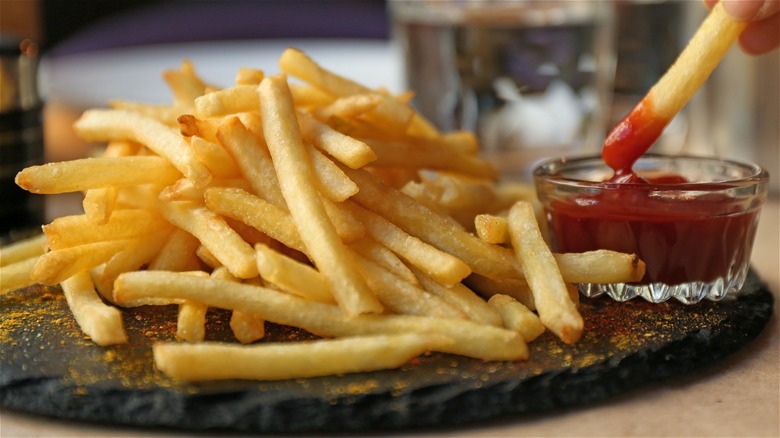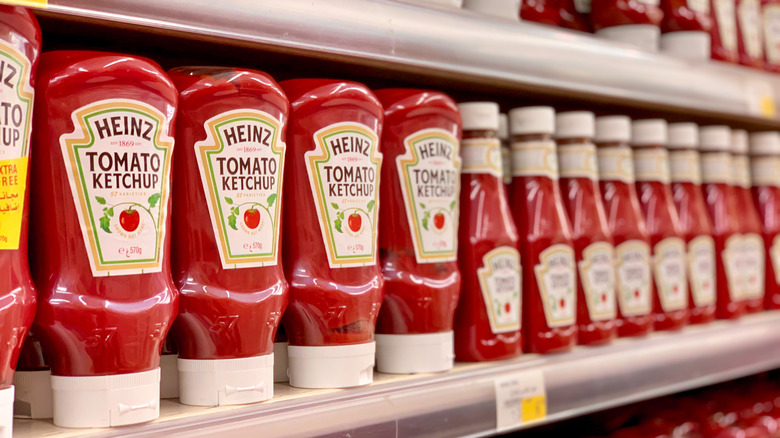Why, Exactly, Do People Dip Fries In Ketchup?
Ketchup is paired with french fries so often that waiters bring out a side of it based on pure assumption. And at restaurants where ketchup doesn't accompany fries, you can usually find a bottle of it on the table. One survey, conducted by Buzzfeed, revealed that 84% of fry-loving individuals opt for ketchup as a dipping sauce. But the ketchup you're picturing now is nothing like it used to be — it underwent many changes before it could be suited for french fry flavoring.
Ketchup's origins can be traced back to 300 B.C., but it didn't start out as a tomato-based paste. When invented in southern China, it was a pickled fish sauce with soybeans, interior pieces of fish, and throwaway products leftover from meat slaughter. There are at least two conflicting stories about how tomato-based ketchup came to be. One theory is that scientist James Mease first fashioned the sauce in 1812, according to the New England Historical Society. Meanwhile, representatives from Heinz believe H.J. Heinz invented it after experimenting with glass jars in his mother's kitchen.
One thing's for sure, though — it was popularized by Heinz. While some early adopters enjoyed ketchup and fries in the 1800s, the trend exploded in the 1940s, thanks in part to the rise of fast food restaurants and diners. Because french fries and ketchup were taking off, fast food restaurants started to carry both leading customers to try the condiment with their fried potato snack.
Heinz was responsible for popularizing ketchup
It's rarely a surprise that Heinz was the first brand to switch up the ketchup recipe and change the course of its future. Even today, Heinz reigns as the most popular ketchup brand in the United States. In a 2020 survey calculated by Statista, 197.92 million Americans claimed to use Heinz ketchup, more than any other brand.
It couldn't have reached this fame without a good boost at the start. According to Andy Masich, who is the CEO of the Senator John Heinz History Center, H.J. Heinz was a "marketing genius" due to his unique promotional tactics. Apparently, his decision to add 57 to ketchup bottles was completely random. "He said, 'I need to think of a number that will be memorable, that will be catchy," said Masich (via DW). From there, 57 was posted everywhere, and it meant absolutely nothing other than "[it had] a nice ring to it," and "It [looked] good [in writing]."
Along with the number, Heinz made sure the company name couldn't be forgotten. At the 1893 Chicago World's Fair, he handed out pickle pins that listed Heinz's accomplishments. Additionally, he once decorated 110 horses to transfer company salesmen, ensuring they caught attention while passing by. Heinz's marketing tactics helped the company stand out, becoming the go-to ketchup brand as diners and fast food restaurants helped the condiment grow in popularity.

